
Dates: September 11, 2023, 8:30am to 5:00pm
Venue: Malkin Penthouse, Harvard Kennedy School, USA
Registration: Harvard Kennedy School Event Page
Co-sponsored by:
• Rajawali Foundation Institute for Asia, Harvard Kennedy School
• Fairbank Center for Chinese Studies, Harvard University
• Mossavar-Rahmani Center for Business and Government, Harvard Kennedy School
• Taipei School of Economics and Political Science, National Tsing Hua University
Supported by: Taipei School of Economics and Political Science Foundation
About the Symposium
Against a backdrop of rising U.S.-China tensions, both countries have accelerated policies to restrict key exports in technological areas critical to economic competitiveness. The global semiconductor industry – largely located in Taiwan – sits at the center of this struggle, undergoing a fundamental transformation that is affecting supply chains, investment, trade, labor, national security, and cost.
In the U.S., a defensive industrial policy to limit sensitive exports is being combined with a proactive policy to coordinate with allies to revitalize the American semiconductor manufacturing industry. Spurred on by the passage of the U.S. CHIPS and Science Act of November 2022, American and international semiconductor manufacturing companies are launching or expanding operations in emerging manufacturing hubs across the U.S. Efforts to develop the semiconductor ecosystem include constructing new manufacturing facilities, coordinating with suppliers and downstream customers, adapting to local regulatory environments, and building the talent central to staffing new facilities.
Yet significant challenges remain, relating to talent shortages, rising costs of a fragmenting supply chain, partial ecosystems, striking workplace differences between the U.S. and Taiwan, and a host of other impediments to success. On Monday, September 11th, leading academics and industry experts will come together to discuss the challenges confronting the semiconductor industry – ranging from supply chain to industrial policy and geopolitics. (source)
Agenda
| 8:30am - 9am |
WelcomeTony Saich (Harvard Kennedy School) and W. John Kao (President, National Tsing Hua University) |
| 9am - 10:30am |
Panel A – Risk & Global Value Chains: Where is the Leverage?Speakers: Chin-Tay Shih (National Tsing Hua University); Willy Shih (Harvard Business School); Kazumi Nishikawa (Ministry of Economy, Trade & Industry, Japan) Chair: Chris Miller (Tufts University) |
| 10:30am - 10:45am | Break |
| 10:45am - 12pm |
Panel B – Talent & Eco-systems: What Drives the Shortage?Speakers: Burn J. Lin (National Tsing Hua University); Rachel Lipson (US CHIPS Office) Chair: Edward Cunningham (Harvard Kennedy School) |
| 12pm - 12:30 | Break |
| 12:30pm - 1:30pm | Lunch |
| 1:45pm - 3:15pm |
Panel C – Geopolitics & Free Trade: What are Costs of Current Tensions?Speakers: Chang-Tai Hsieh (University of Chicago); Mark Wu (Fairbank Center, Harvard University), Becky Fraser (Qualcomm) Chair: Joseph Nye (Harvard Kennedy School) |
| 3:15pm - 3:30pm | Break |
| 3:30pm - 5pm |
Panel D – From Reshoring to ‘Friendshoring’: Can Industrial Policy Work for Semiconductors?Speakers: Tain-Jy Chen (Taipei School of Economic and Political Science, National Tsing Hua University); Fiona Murray (MIT) Chair: Chang-Tai Hsieh (University of Chicago) |
Watch the full recording of the event.
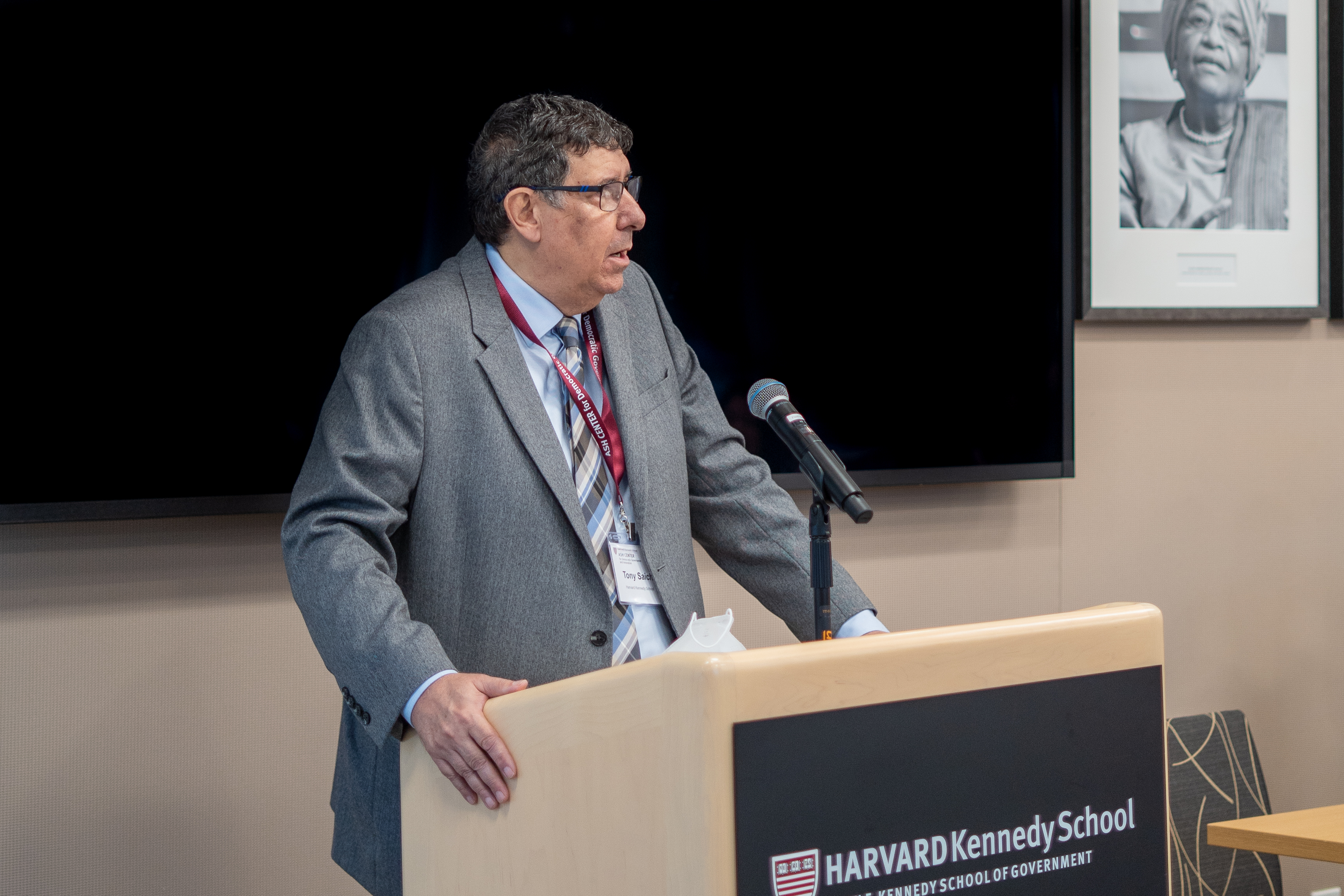
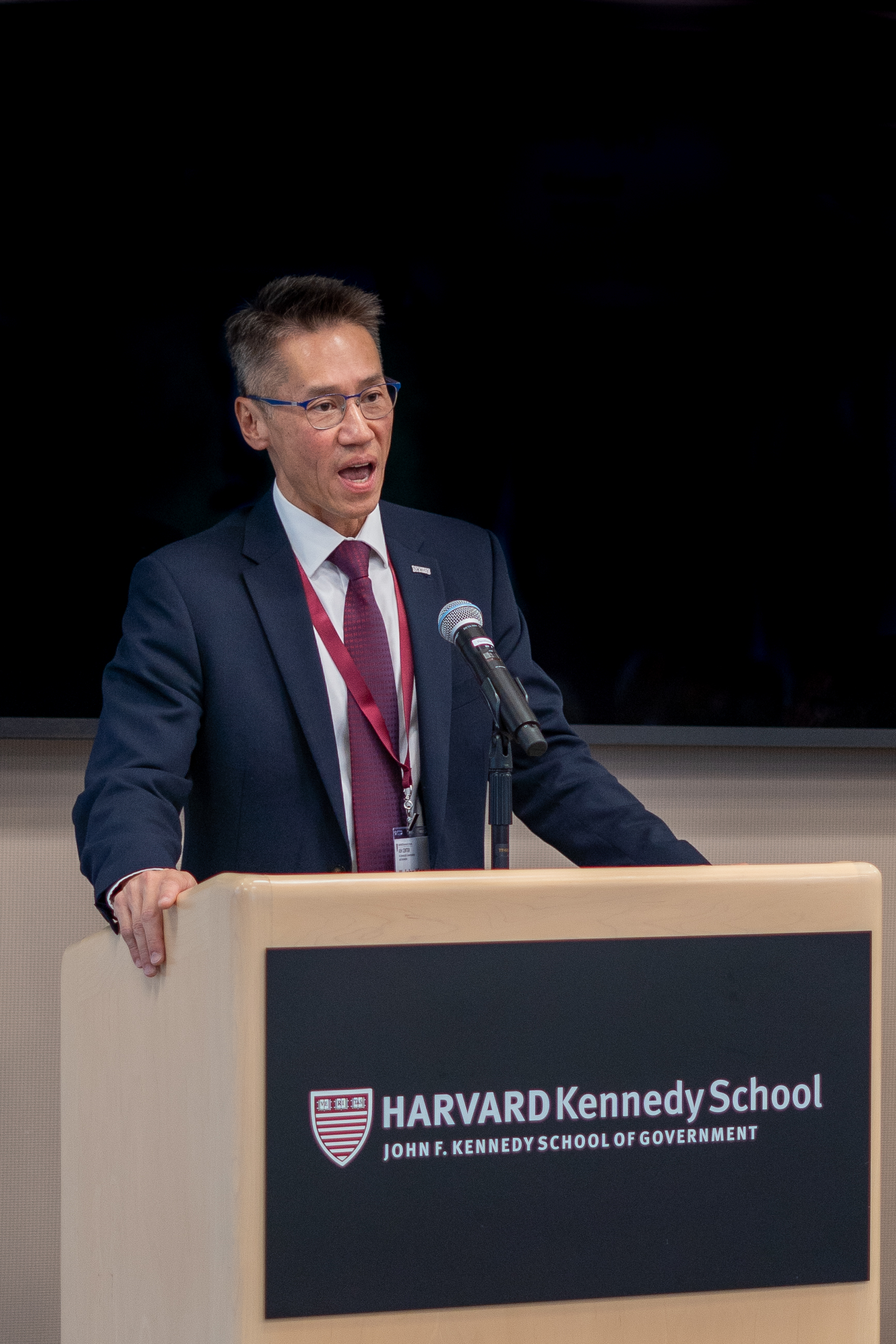
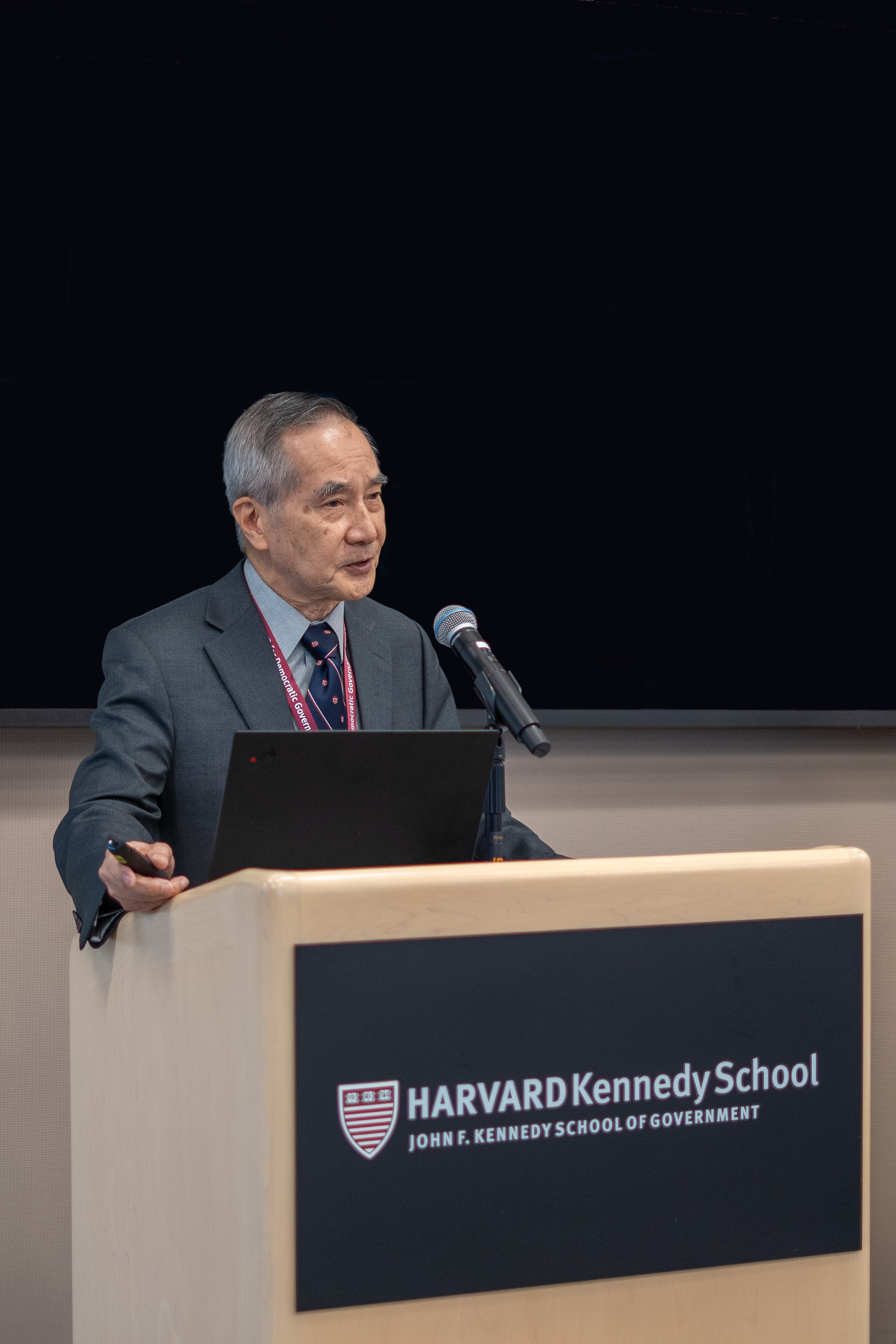
Panel A
Aiming to explore the global supply chain of the semiconductor industry, Kazumi Nishikawa analyzes the policy changes in Japan resulting from the impacts of the U.S.-China situation and the pandemic. This includes elevating semiconductor policy from a general industry policy to an economic security policy. Professor Chin-tay Shih emphasizes the complexity of the semiconductor supply chain and reviews the developmental history of Taiwan’s semiconductor industry. He advocates for global semiconductor and future technological development relying on open, freely flowing trade, urging Taiwan to continue innovating, collaborating, and adjusting strategies to maintain its advantages. Willy Shih discusses various issues, including the specialization of semiconductor work, diversification of the supply chain, U.S. industrial reconstruction, and the importance of the demand side.
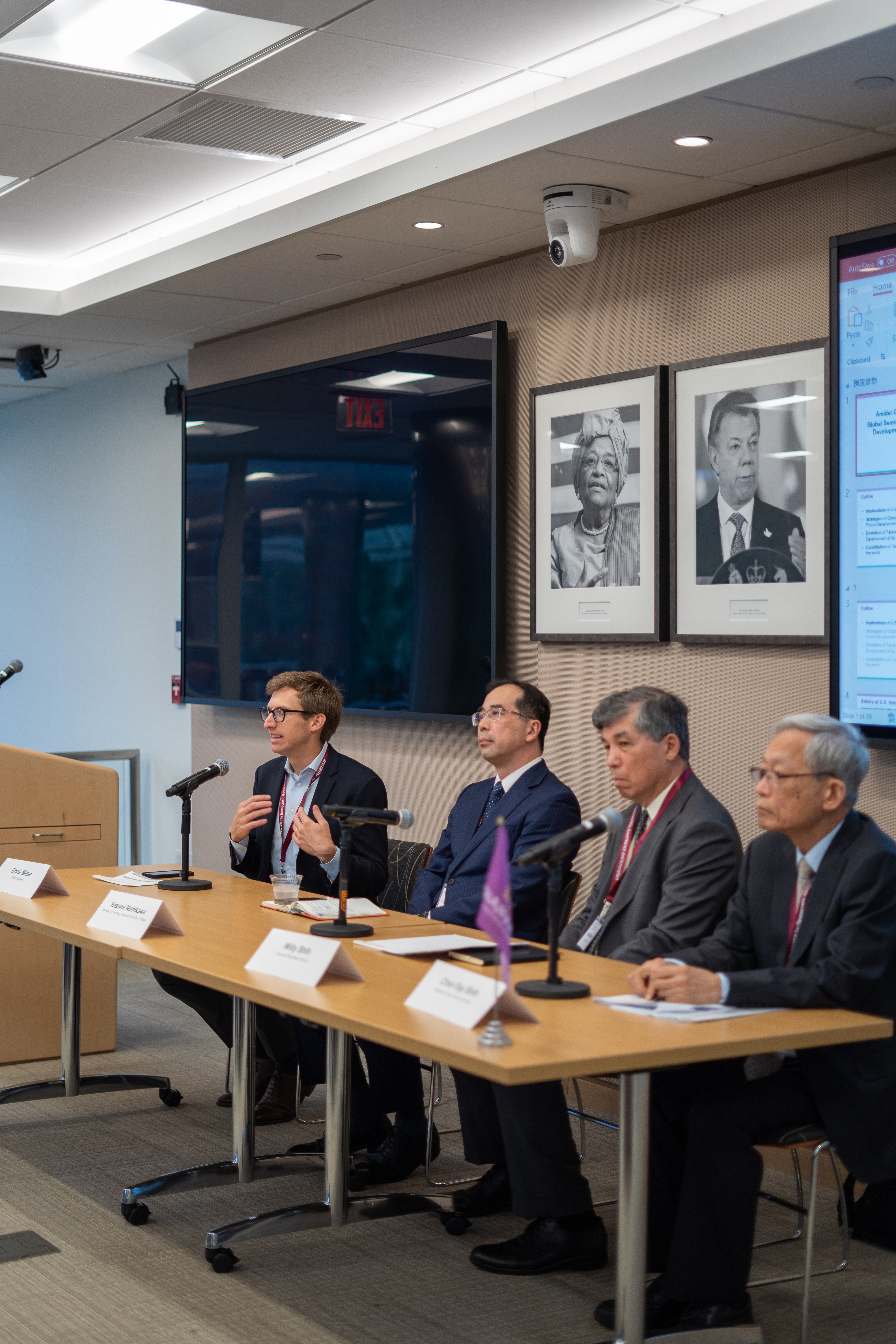
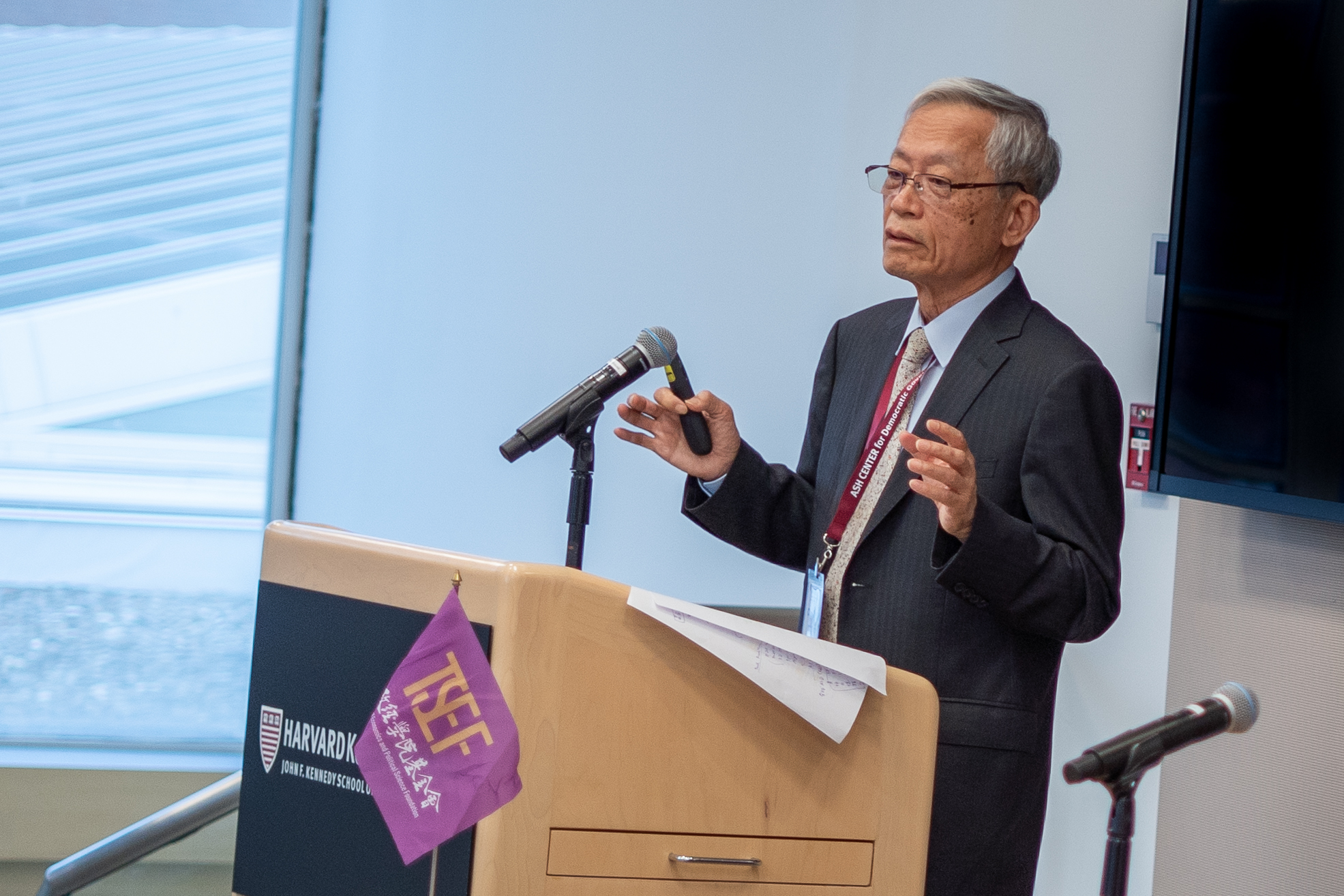
Panel B
Aiming to explore the ecosystem and talent shortage challenges in the semiconductor industry, Elisabeth Reynolds believes that recent significant legislation and substantial increases in investment in the United States signify a major shift in industrial policy. She advocates that the long-term transformation process is crucial, with private sector investment, competition, and learning-by-doing being indispensable factors. Professor Burn Lin points out that the fundamental cause of the semiconductor talent shortage lies in the complexity of the manufacturing process, necessitating international division of labor. He also proposes the complementary relationship and division of labor between military and civilian applications. Additionally, besides losing talent to competition from other industries, Professor Lin highlights the concentration of talent in specific processes within the semiconductor industry and the lack of doctoral-level talent, providing reasons and potential solutions for these phenomena.
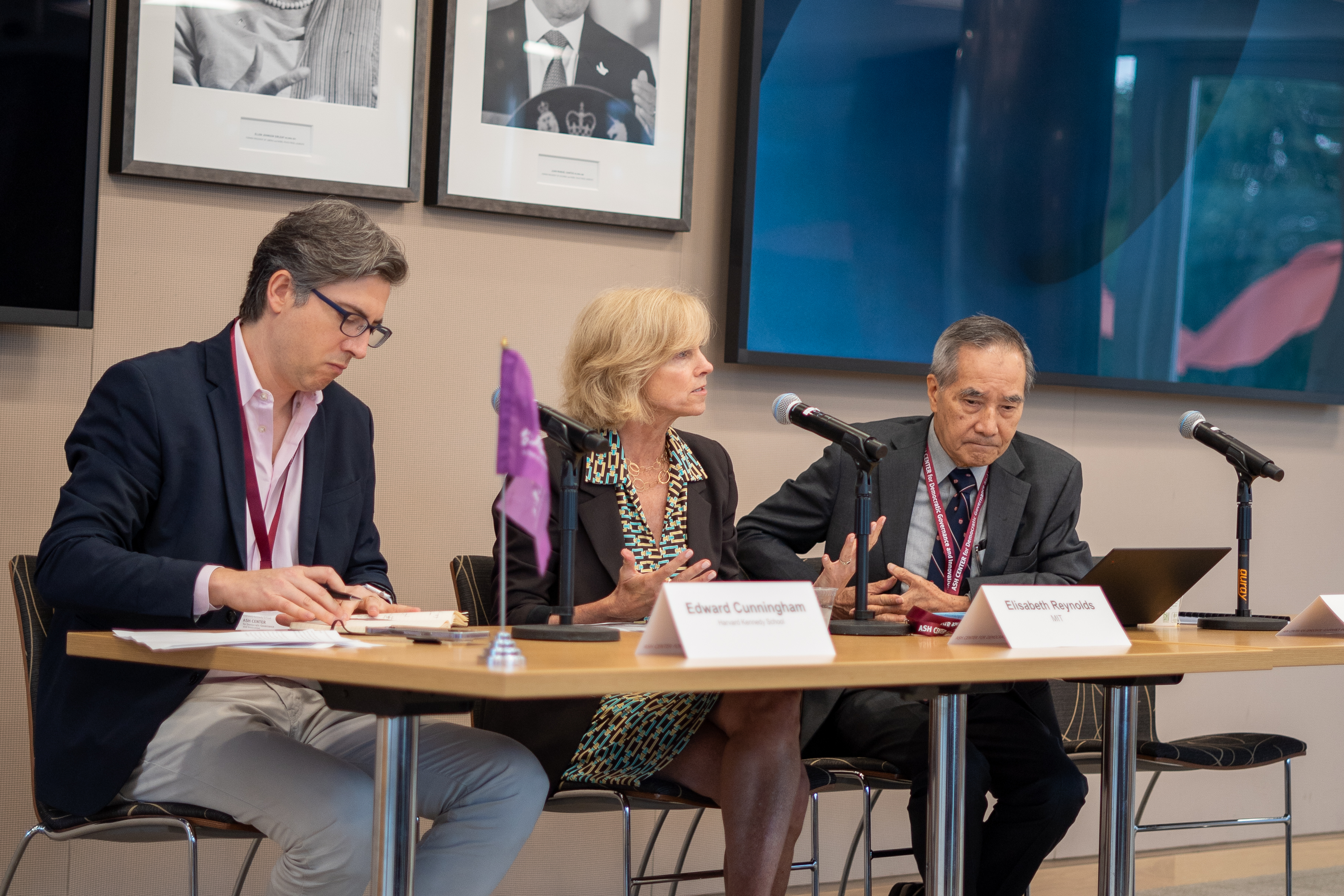
Panel C
Aiming to explore the effectiveness of Biden’s trade policy, Joseph Nye, through an analysis of the history of U.S.-China relations and the differences between the current situation and the Cold War, argues that decoupling and containment are costly and yield limited results. He highlights the significance of TSMC for both China and the global landscape, suggesting that maintaining the status quo in the Taiwan Strait should be achieved through interdependence and deterrence. Professor Mark Wu emphasizes that global trade has entered a new paradigm different from free trade, discussing the necessity, costs, and effects of the United States and its allies implementing new trade policies. Professor Chang-tai Hsieh contends that the new U.S. trade policy cannot effectively address security issues; instead, it may hollow out Taiwan’s core industries and disrupt the interdependence between China and Taiwan.
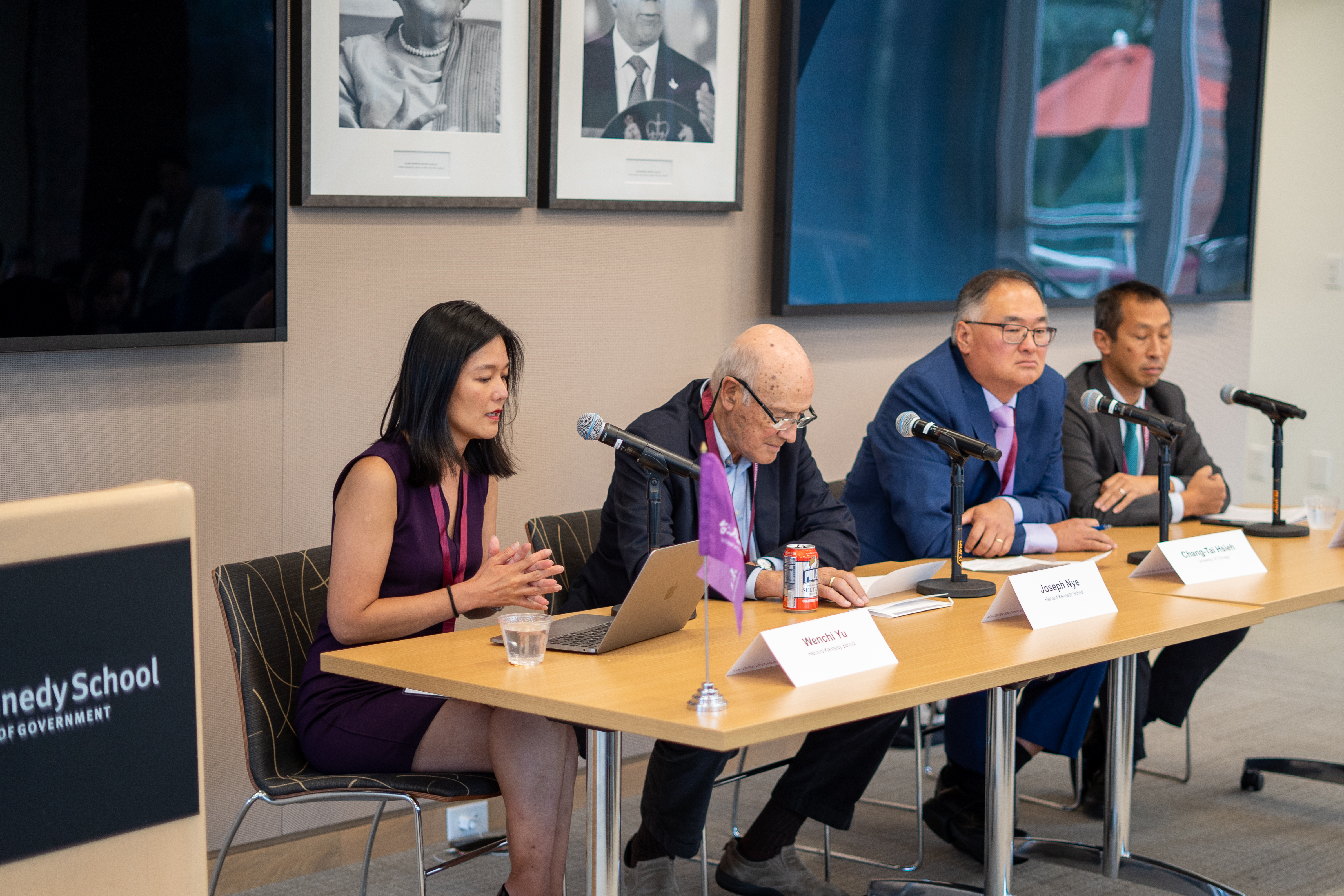
Panel D
The speaker and the moderator, through a review of the origin and development of Taiwan’s semiconductor industry policies, summarize the various conditions necessary for the success of industrial policies, including political, economic, social, infrastructure, education, and more. Fiona Murray also points out the need for industry policies supported by long-term consensus, which may be challenging to implement in the current political system in the United States and its highly private sector-dependent economy. Professor Tain-Jy Chen emphasizes the uniqueness of the semiconductor industry, requiring continuous investment of substantial funds to facilitate successive generations of research and development. Regarding the development of the semiconductor industry, countries need to seek a balance between autonomy and interdependence. The Taiwanese semiconductor industry, which initially sought to avoid political involvement, is now compelled to address related issues due to global political dynamics and competition.
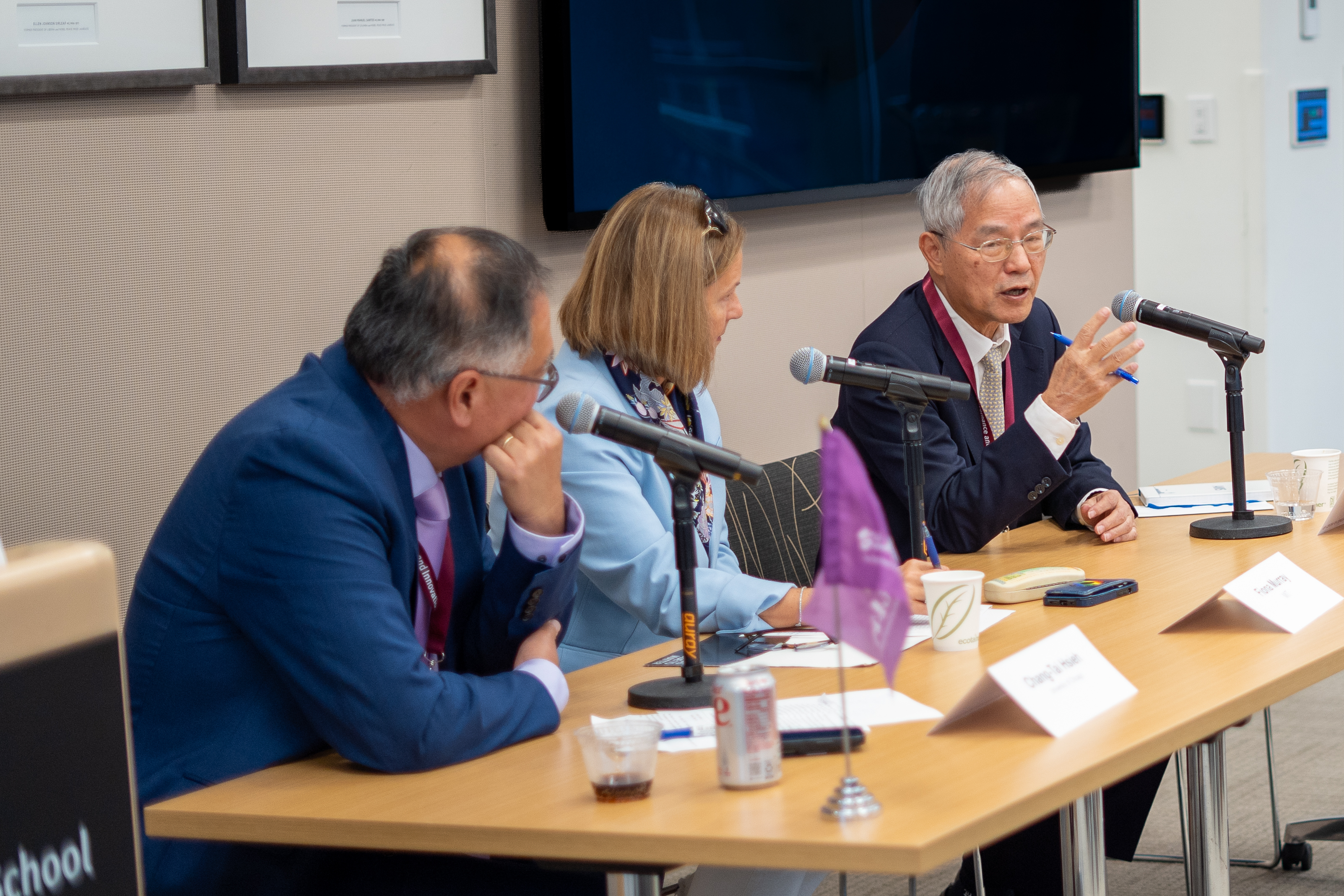
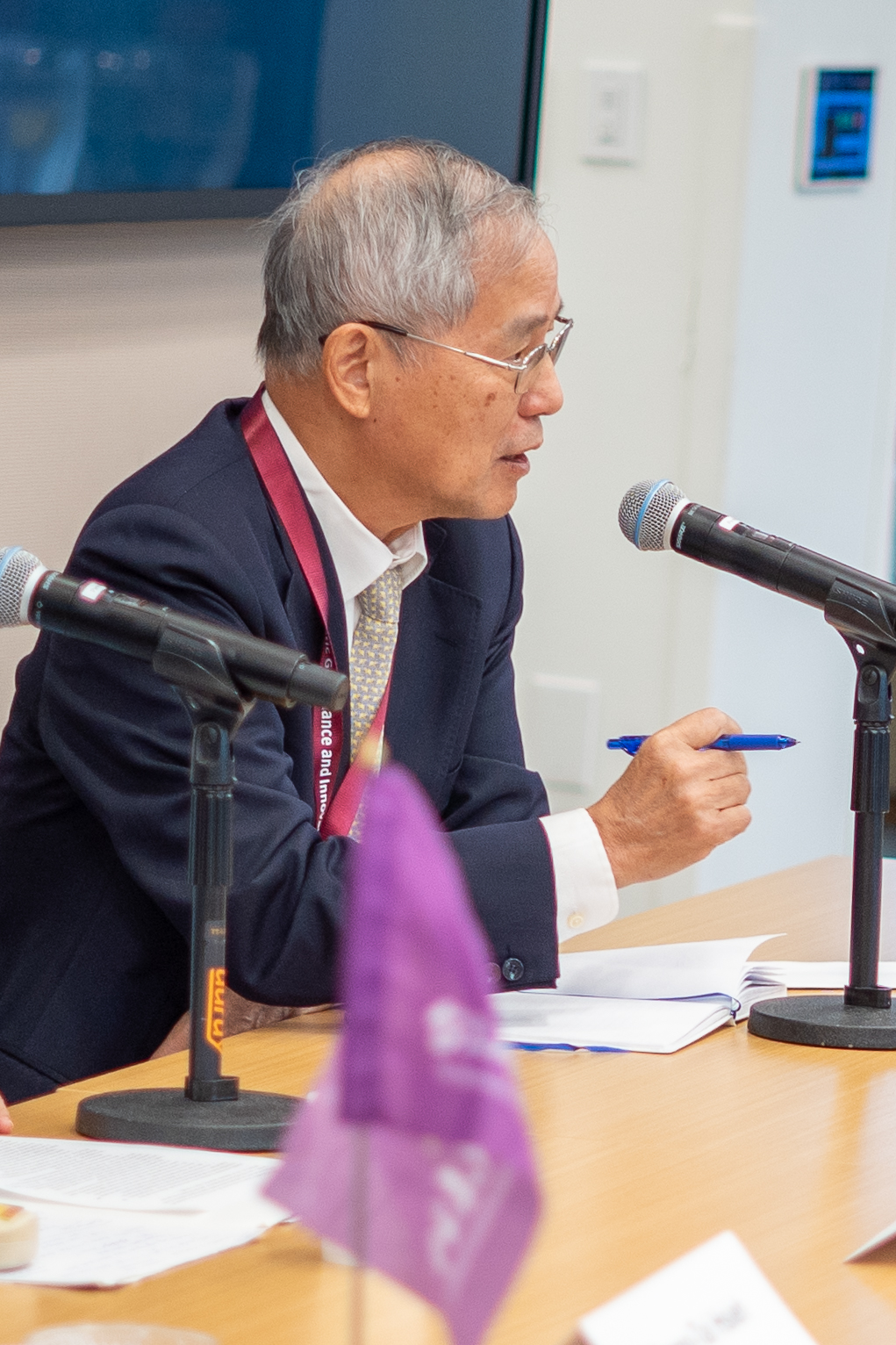
More info: check here